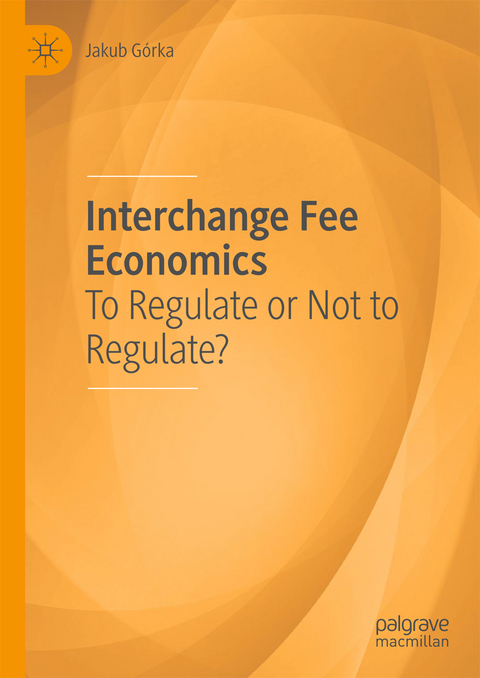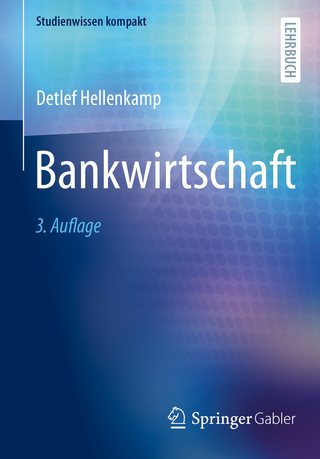
Interchange Fee Economics
Springer International Publishing (Verlag)
978-3-030-03040-7 (ISBN)
Interchange fees have been the focal point for debate in the card industry, among competition authorities and policy makers, as well as in the economic literature on two-sided markets and on the regulation of market failures. This book offers insight into the economics of interchange fees. First, it explains the nature of two-sided markets/platforms/networks and elaborates on four-party schemes and on the rationale behind interchange fees according to Baxter's model and its later refinements. It also includes the debate about the optimum level of interchange fees and its determination ("tourist test"), and presents the original framework for assessing the impact of interchange fee regulatory reductions for the market participants: consumers, merchants, acquirers, issuers, and card organisations. The framework addresses three areas of concern in reference to the transmission channels of interchange fee reductions (pass-through) and the card scheme domain (triangle: payment organisation, issuer, acquirer). The book discusses the effects of regulatory interchange fee reductions in Australia, USA, Spain, and, most specifically, Poland. It will be of interest to policy makers, card and payments industry practitioners, academics, and students.
Jakub Górka holds a PhD in economics and is Assistant Professor at the Faculty of Management, University of Warsaw, Poland. He is a member of the Payment Systems Market Expert Group (PSMEG), assisting the European Commission to prepare legislative acts or policy initiatives on payment issues, and an advisor to the President of Social Insurance Institution (ZUS) in Poland on FinTech. He is an author and editor of numerous research papers and books, including Transforming Payment Systems in Europe. He has provided expert advice for the National Bank of Poland, the Polish Ministry of Finance, and companies within the payments industry. He also founded the Payments Drift Forum. In the years 2016-17 he was leading the stream "e-Taxes" in the Polish government programme "Cashless, Paperless". He has been distinguished with several awards, including an award from the Polish Prime Minister.
Chapter 1: Two-Sided Markets and Interchange Fees.- Chapter 2. Interchange Fee Reforms in Various Countries.- Chapter 3. Empirical Investigation of the Polish Interchange Fee Reform Effects.- Chapter 4. Final Remarks.
"This book is a must-read for regulators, academics and market participants." (Central Bank Payments News, Vol. 2 (5), May, 2019)
"I would recommend this book to anyone with an interest in the issues surrounding interchange fees within payment schemes, especially those involved in impact assessments of interchange fee regulations." (Harry Leinonen, Journal of Payments Strategy & Systems, Vol. 13 (2), 2019)
| Erscheinungsdatum | 12.12.2018 |
|---|---|
| Zusatzinfo | XVIII, 181 p. 32 illus., 3 illus. in color. |
| Verlagsort | Cham |
| Sprache | englisch |
| Maße | 148 x 210 mm |
| Gewicht | 393 g |
| Themenwelt | Wirtschaft ► Betriebswirtschaft / Management ► Finanzierung |
| Betriebswirtschaft / Management ► Spezielle Betriebswirtschaftslehre ► Bankbetriebslehre | |
| Wirtschaft ► Volkswirtschaftslehre ► Finanzwissenschaft | |
| Wirtschaft ► Volkswirtschaftslehre ► Makroökonomie | |
| Schlagworte | Banking • Baxter's model • Baxter’s model • Financial Economics • Financial regulation • Interchange Fees • payment industry • regulatory interchange fee reductions • two-sided markets |
| ISBN-10 | 3-030-03040-7 / 3030030407 |
| ISBN-13 | 978-3-030-03040-7 / 9783030030407 |
| Zustand | Neuware |
| Haben Sie eine Frage zum Produkt? |
aus dem Bereich


